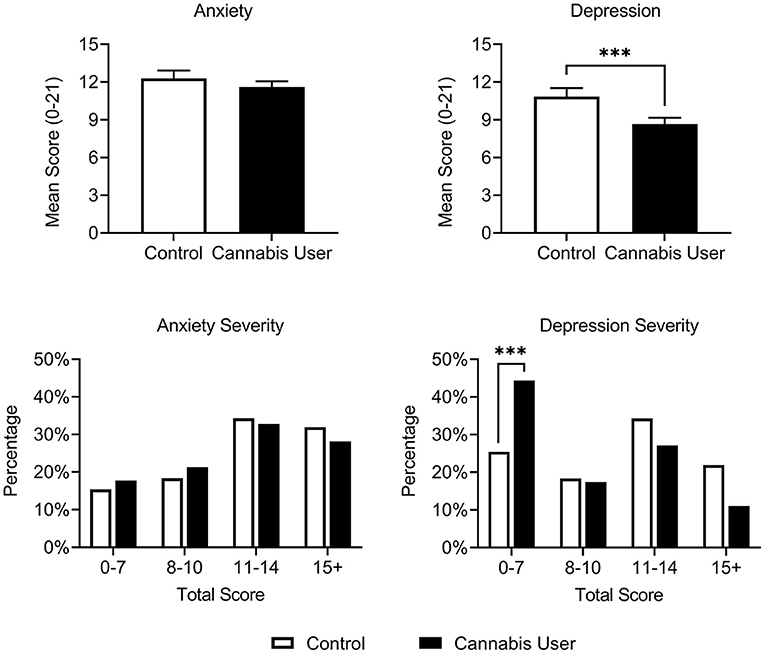For mental health disorders like anxiety and depression, having plenty of options for treatment is incredibly important.
While antidepressants and anti-anxiety medication have been literal lifesavers for many people throughout the 20th and 21st centuries, for a smaller subset the treatments don't always work, or can cause substantial side effects.
This is why "an increasing number of people struggling with anxiety and/or depression are trying cannabis products for symptom management," explains a new study, led by Medical University of South Carolina neuroscientist Erin Martin.
Results from past studies on cannabis and depression have been mixed. For example, back in 2019 we reported on a study that linked teenage marijuana use to adult depression. However, some isolated or synthetic components of cannabis have shown a short-term reduction in anxiety. And while clinical studies have yet to be done on the effects of these chemicals on depression, mouse studies have been promising.
This latest study looked at 368 cannabis users and 170 non-using controls, and asked them to complete an online survey with details about their anxiety and depression, sleep, quality of life, chronic pain issues, and their use of cannabis.
The researchers used the Hospital Anxiety and Depression Scale (HADS) to analyze the participants' experiences. On the HADS, a score above eight indicates clinical concern, but the score can go as high as 21.
Those that were taking cannabis products showed lower levels of depression, but not anxiety. A greater proportion of those who took cannabis also scored below 8 on the HADS relative to controls. Cannabis users also reported better sleep in the last month than the controls, and rated their quality of life higher.
Plus, when a small number of the non-users took up cannabis in a follow up, anxiety also dropped in those participants.
"While we observed no effect of medicinal cannabis use on anxiety at baseline," the team writes in their new paper, "participants that initiated cannabis use during the follow-up period reported a significant reduction in anxiety that was not mirrored in Non-initiators."
The researchers also found that the effect was strongest amongst those using products with larger amounts of cannabidiol (CBD), as opposed to tetrahydrocannabinol (THC), and wasn't affected by those also taking 'traditional' antidepressants.

Above: The HADS score for both cannabis users and controls, and the percentage difference in grouped HADS scores.
However, these data are by no means a recommendation to quit medications and turn to cannabis for an instant quality of life boost, or an anxiety and depression buster.
As you can see in the graph above, the results are still quite small. Plus, there are a few limitations to the study. To start with, correlation doesn't equal causation. This was an observational study, so we can't tell if using cannabis products actually lowered the depression scores.
Because this was a self-reported questionnaire, it's harder to untangle exactly which effects may be at play.
"It is possible that some of the symptom improvement reported by medicinal cannabis users can be attributable to an expectancy effect, especially in consideration of the low daily CBD doses reported by participants relative to those used in previous clinical studies," the team writes.
"Similarly, controls were people that were considering the use of medicinal cannabis to treat their condition. Therefore, it is also not surprising that people who believed medicinal cannabis might assist with their condition enough to initiate use would perceive a substantial benefit."
But despite all of this, positive results like this deserve more investigation, particularly if it could help those that either don't want to, or can't take antidepressants.
As medicinal and recreational use of CBD products picks up in more countries, research like this is likely to pick up speed, too.
The research has been published in Frontiers in Psychiatry.



No comments:
Post a Comment